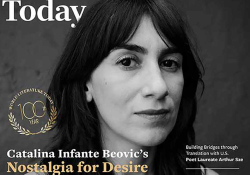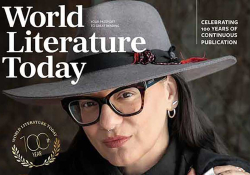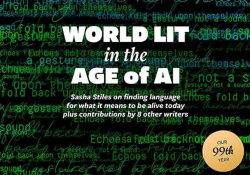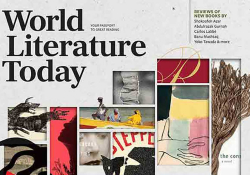Aviva-No by Shimon Adaf
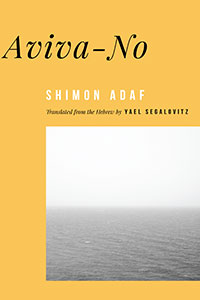
Aviva-No
Trans. Yael Segalovitz
Alice James Books
thus I shall not let slip between my hands / a sister into time.
– Shimon Adaf
I must confess: Shimon Adaf’s Aviva-No was not my first choice when it came to selecting a book for this issue’s editor’s pick. It wasn’t even my second choice. But when it showed up in my mailbox less than two days before the issue was scheduled to go to press, something made me set those other books aside in favor of Adaf’s third book of poems, first published in Hebrew in 2009. Perhaps it was the striking cover design, featuring a black-and-white seascape by Tel Aviv–based photographer Erez Segalovitz, set against a golden background that intimates the calyces of marigold, chrysanthemum, and mustard evoked in the poems. Turning over to the back cover, seeing that Aviva-No had won the 2010 Yehuda Amichai Prize also gave the book additional cachet, along with an endorsement by Robert Alter, Amichai’s most noted translator.
However, what really drew me into the depths of the book, beyond the stylish exterior, was the subject matter: the Aviva of the title names the author’s older sister, who died when she was forty-three. My own brother Dave died suddenly at the age of fifty-two, and I’ve spent the past three years coming to terms with that loss. The tradition of writing poems for a lost sibling is most famously embodied in the concluding lines of a first-century bce elegy by the Latin poet Catullus: “ave atque vale” (hail and farewell). Catullus’s brother—to whom he was deeply attached and who encouraged him to write poetry—had died abroad near Troy when Catullus was only twenty-six.
Aviva had similarly encouraged the young Shimon to pursue writing, yet the author confronts the impossibility of figuring her absence with words: in “how will I, then, how will I speak / her,” the line break registers that howling abyss. Throughout, the poems break across temporal, corporeal, and linguistic chasms, visually represented by the pitch-black spread of pages 132–133.
The brilliance of Yael Segalovitz’s translations in Aviva-No is matched by the perceptivity of her introductory note, which situates Adaf’s place as a Mizrachi Jew in contemporary Israeli society and insightfully analyzes the defamiliarizing effect of the Hebrew originals.
“Take thee a portion of my body that you may live,” Adaf writes. For survivors, such a cri de coeur continually haunts our days.
Daniel Simon
Editor in Chief

